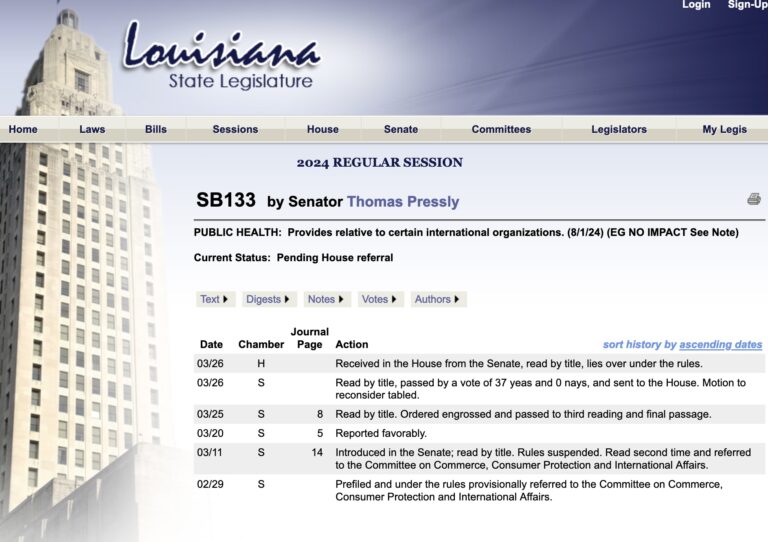A win for states’ rights: how do state sovereignty laws apply to the WHO and UN?
In affirming self-determination, some states are crafting laws that restore state sovereignty through nullification of federal directives – protecting against globalist-run NGOs.
By asserting the tenth amendment powers of the state to protect the health and welfare of its people, these pieces of legislation could be used to protect against attempts at global governance.
For example, if the US federal government implements federal legislation – such as the already-passed 2023 NDAA, which obliges the country to comply with mandates from the WHO, states with this legislation in place can quickly put forward bills to confirm their tenth amendment rights and protect their citizens.
Utah recently passed SB 0057, the Utah Constitutional Sovereignty Act. It upholds the principle of state sovereignty:
establishes a framework for the Legislature, by concurrent resolution, to prohibit the enforcement of a federal directive within the state by government officers if the Legislature determines the federal directive violates the principles of state sovereignty;
Listen to Utah State Representative Ken Ivory describe the purpose of the legislation:
Tennessee legislation HB 2795 / SB 2775 is a fascinating read that provides a means for citizens of Tennessee to review and nullify federal actions that exceed the prescribed authority under the US constitution. We would highly recommend reading the 12 page (double-spaced) bill to understand the reasoning. This bill appears to be deferred for summer study – sort of like saying “not now”. Read detailed reporting about Tennessee state sovereignty issues at the TNCSS substack.
[A] law repugnant to the Constitution is void.” An act of congress
repugnant to the Constitution of the United States cannot become a law. The
Constitution supersedes all other laws and the individual’s rights shall be liberally
enforced in favor of him, the clearly intended and expressly designated beneficiary.
Marbury v. Madison, 5 U.S. 137 (1803);
Differences between the TN and UT approaches:
The Utah law:
- Was rapidly signed by the Governor
- Is significantly shorter and simpler
- Requires 2/3rd majority of both houses to pass a concurrent resolution
- The concurrent resolution would prohibit state government officers from assisting with a specific federal directive
The Tennessee legislation:
- Was sent to summer study, a means of deferring the question till later
- Is a long, philosophical read with examples
- Provides numerous methods for federal actions to be nullified:
- Governor executive order
- Legislation passed by simple majority of both houses
- A TN court order
- Petition of ten counties or municipalities – followed by simple majority legislative process
- Petition of 2000 registered voters – followed by simple majority legislative process








